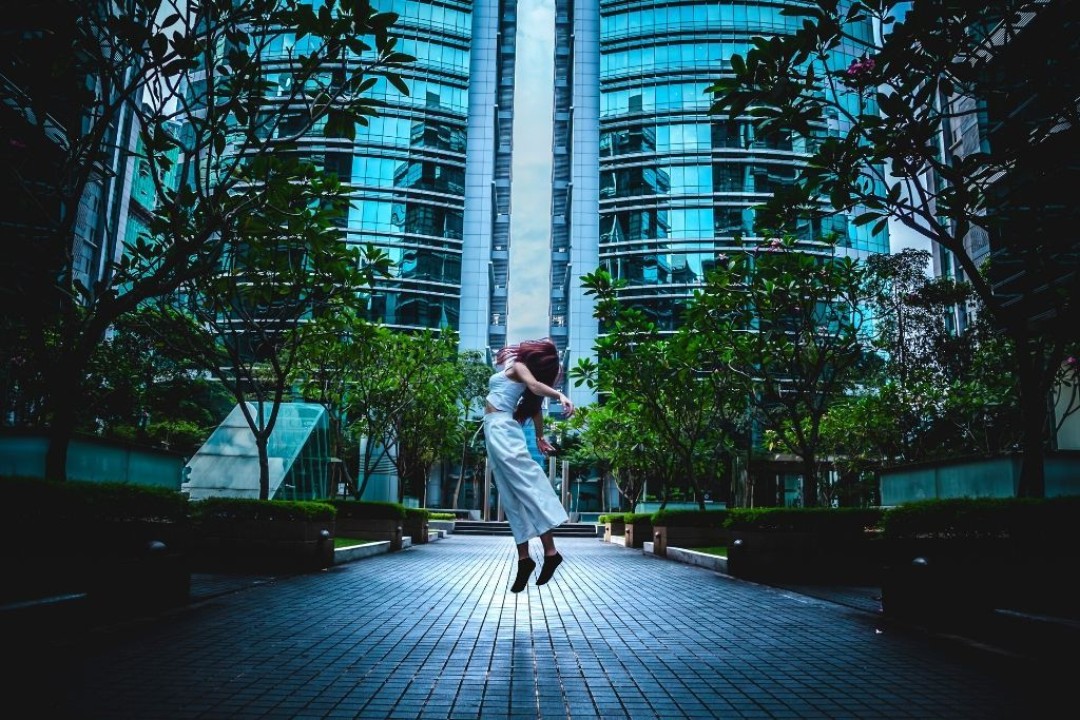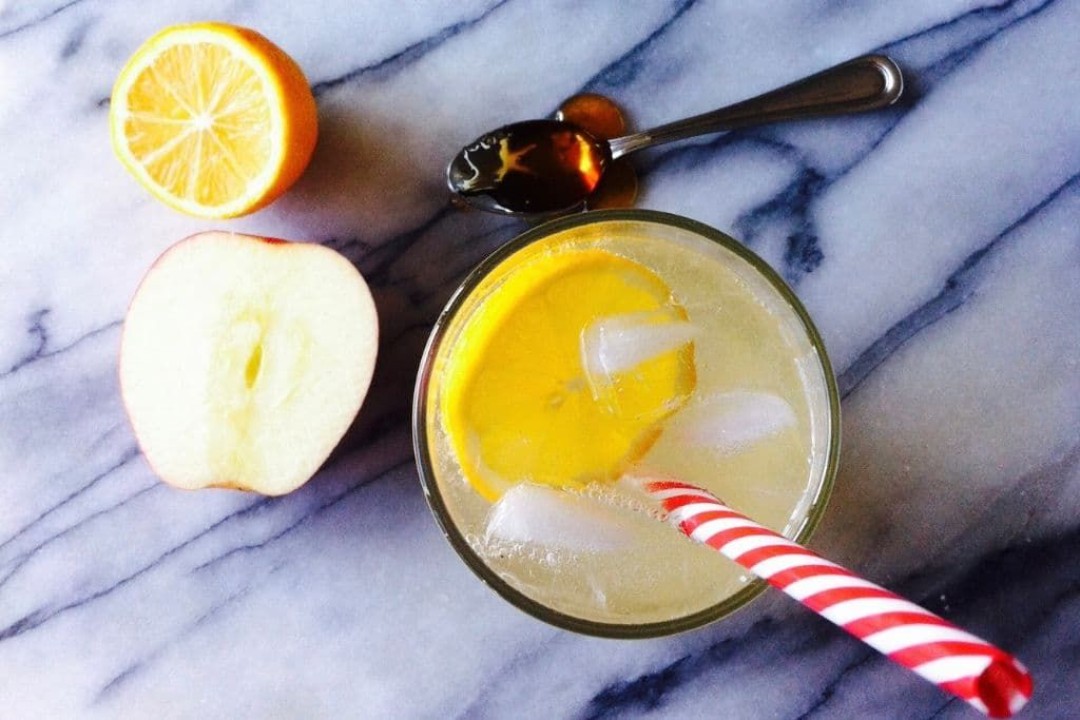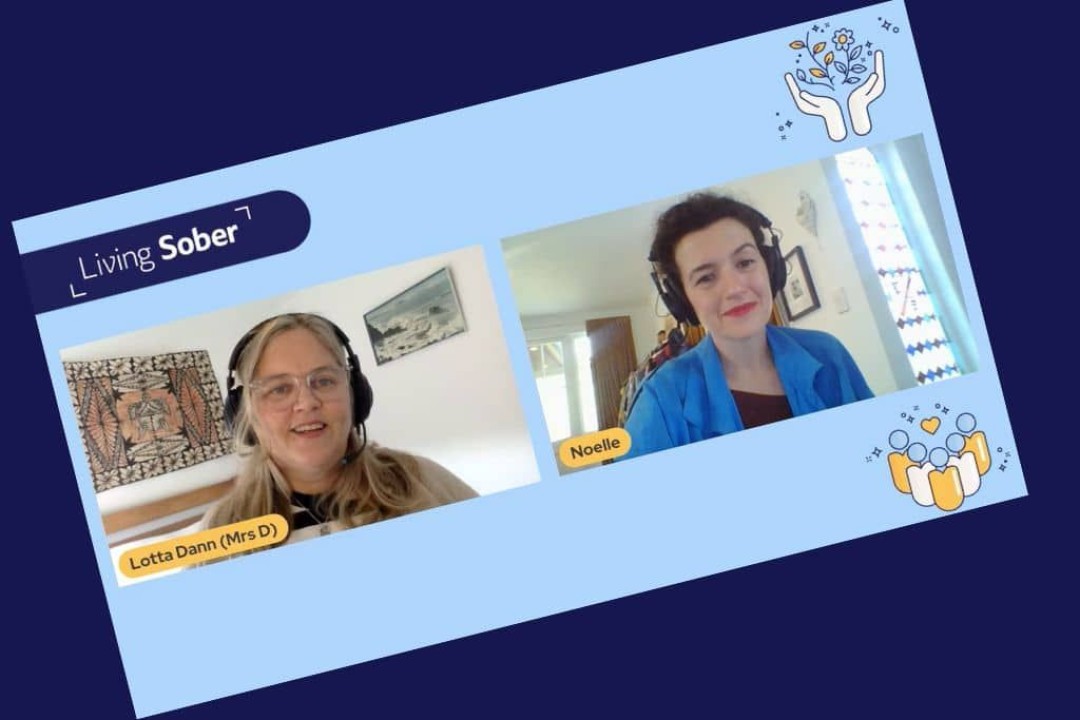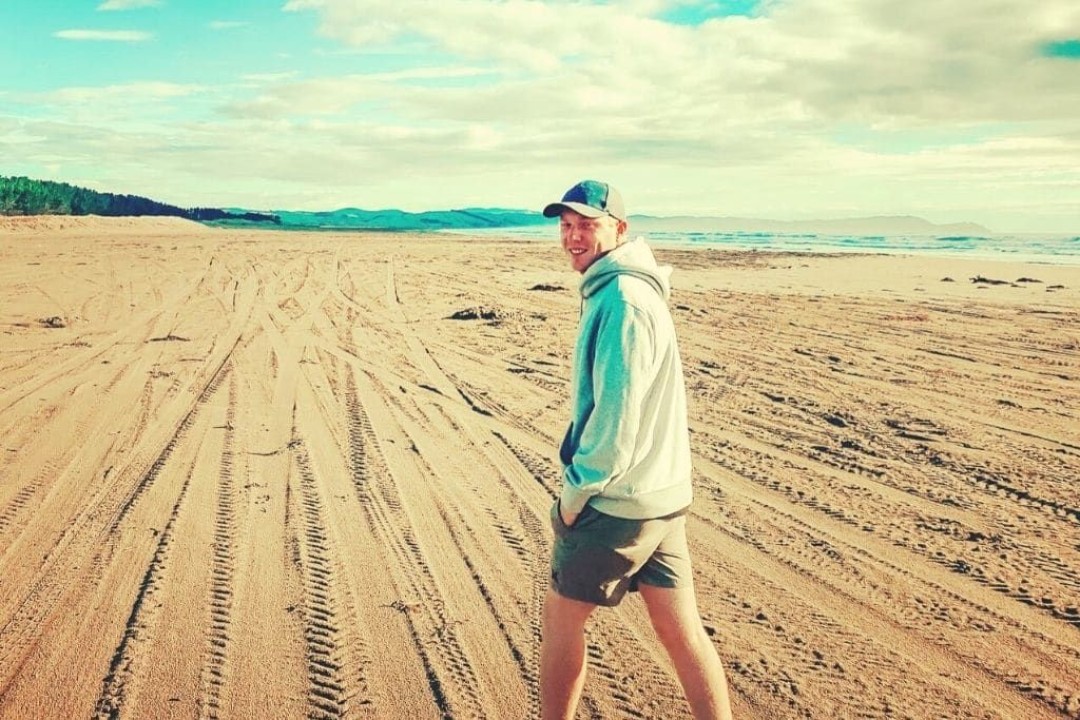Sober Story: Miriam
January 4th, 2021 Interviews 12 comments
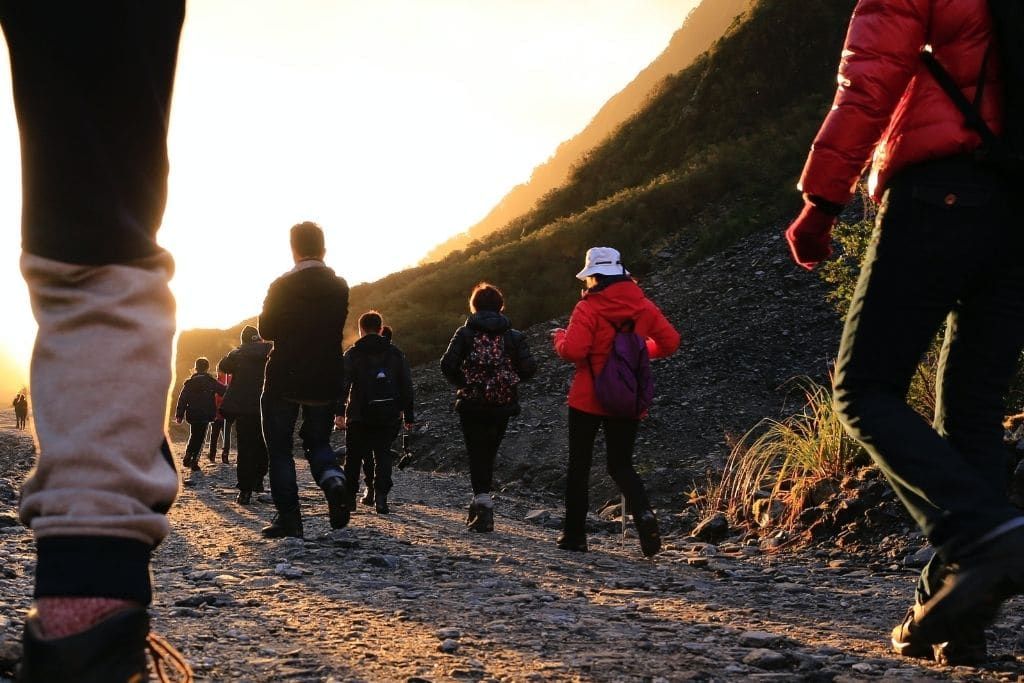
Today’s Sober Story comes from Miriam, a 78-year-old living in Rotorua.
==========
Mrs D: How long have you been sober for?
Miriam: Over 30 years.
Mrs D: Congrats! What can you tell us about the end of your drinking days? What do you remember?
Miriam: Remember ? Not a lot ! Other than on my 40th birthday I realised I was still alive, and that had not been the plan. I had a bottle of champagne for breakfast followed by another for lunch. And decided to stop trying to manage my drinking and “just drink like a man” ie without any mind to quantity, time of day, place, brand, company. This rapidly turned into life being even more of a blur than it had been, blackouts (I learned later this is what you call not knowing where you are or why and how you got there), ever more frequent humiliating myself, totally focussed on when and where that next drink would be waiting for me – while I went through the motions of a highly paid, high profile job that dealt with hundreds of people a year. And I don’t believe I “gave up”. If this had been a boxing match, I was knocked out – but not by one mighty blow, by alcohol itself. I couldn’t keep it down yet I couldn’t not try to get it down. I had painted my bedroom walls black – white was too bright – and my mattress was on the floor so as not to fall out during the night. I often had a bucket in one hand and a bottle of gin in the other. I might as well have tipped it straight into the bucket, but THAT never occurred to me!
Mrs D: Wow, full on. What led to you finally stopping?
Miriam: Two events happened at the same time; the (real or imagined) possibility of losing my job, so I pounced on the organisation’s Employee Assistance Programme, which meant I could not get fired while in it. And meeting another drinking alcoholic in a pub who told me there is a solution, a way out for alcoholics. And told me about meetings and to get to one. I had known for a long time I was an alcoholic – it just never occurred to me that this might be a reason to stop drinking. It just explained WHY I drank.
Mrs D: How was it for you in the early days?
Miriam: Ah, those early days. They were great and horrible. Horrible because I just put down the bottle and detoxed without any help …. I believed exercise helped detoxing, so walked a lot, and was seeing faces in puddles and eyes where there should have been leaves. Horrible because I had NO other plan in life than my next drink. It’s not like I was deciding which club I’d join, and do that. AA was my last and only glimmer of hope for myself. I’d go to work and sit at my desk and wait for 3.30pm, the earliest time one could “glide” off, planning which pub to go to … it was just what I was so used to doing! And then someone from AA would ring me, or I’d be walking across the street (in Wellington) and I’d meet someone who had seen me at a meeting, and they would say let’s go have a cuppa tea. But those early days were also great. At that first meeting – which took me every remaining ounce of strength to walk into a room in a church full of people with the God word on the wall – I experienced acceptance without judgement and without questions as to what I did or how much I earned etc. And from my perspective, I acknowledged that actually I do want to live, and this was all I could see to do, come and be with these people. And, being my sort of person, being given things to do – the steps, and things to read – literature and a meetings list, and telephone numbers, which I did not use for ages, to my loss, gave me structure and pressed my perfectionist and obsessive buttons – I was going to do this, and do it perfectly!! And in those days, they gave you a temporary sponsor until you were sober enough to choose your own, so I had a real person to lean on.
Mrs D: What did you find most difficult in those early days?
Miriam: Admitting to myself that I did not know what to do. I had no life skills of any use to me as a non-drinking person, that it was not my terrible childhood (and it was terrible), nor my lifelong troubles and woes that explained all my misery and drinking, it was alcohol that explained my life experiences and decisions.
Mrs D: How did those around you – family & friends – react when you started getting sober?
Miriam: I had my last drink of alcohol on May 21, 1987. In July the Employee Assistance Programme offered me two choices : go to Queen Mary Hospital for treatment, or resign. Naturally, since the first option was on full pay, I took that ! I told my mother where I was going, who announced I was just attention-seeking again, and she was off to somewhere for a well-earned holiday. My siblings all live overseas, so they did not find out till many years later. My flatmates laughed and said I just needed a good rest. What was nicely glossed over was that they were my flatmates because I was now reduced to affording one room, not a whole house, and we worked and “socialised” ie drank together. People at work probably gossiped, I did not notice !
Mrs D: Have you ever experienced a relapse?
Miriam: I have experienced MANY relapses – those of other people. I have never seen things get better with alcohol, and many I’ve known have died drunk, or ended up in a psych ward permanently. And then there are all the stories that come when people DO manage to get back to recovery. They are always sicker, poorer in every way, and more disgusted with themselves. Alcohol is NOT the solution for anything. These people have helped me make that decision : there is always a solution to every problem, even when I do not know what that solution is, and alcohol is not it. So no, I have never picked up again.
Mrs D: How long did it take for things to start to calm down for you emotionally & physically?
Miriam: It got worse before it got better. Or rather, I started to become aware of what I felt and thought. I had various physical ailments as a direct result of the alcohol, and some secondary effects. Malnutrition was one! Hating water was another! Physically things turned around quite quickly. Emotionally, I was already calmer after that first meeting. My time in treatment was a huge education and for me the adage ‘knowledge is power” is true. Having reliable insight and help with reinterpreting my life and experience, and building a new life routine that included going to meetings and listening to people on a regular basis was very calming. Of course, there were emotional ups and downs as I still had 45 years of chaos behind me, emotional habits of a life time, life itself to deal with and accepting life on life’s terms did not come easily!
Mrs D: What about socialising sober, how hard was it getting used to going out and not drinking?
Miriam: I did not try to “socialise” with people in situations that included alcohol for 5 years. I believed it when people said that the number one reason alcoholics pick up a drink is because they forget not to. I really took my decision not to pick up again ever seriously, and might have been over cautious … but who knows. Thereafter I only went to things that included alcohol if I could take my own beverage, and I always made sure I could leave when ever I wanted to – i.e. had my own transport or was in charge of it. I only poured my own drinks. Today, I do not serve alcohol, I shy away from becoming friends with people who use it regularly. I let trusted friends bring their own and take any left over away that evening, but actually very few of them drink at all, and not just because they are in recovery. They don’t need it. Best role models I could hope for!
Mrs D: Was there anything surprising that you learned about yourself when you stopped drinking?
Miriam: There was so much! I knew nothing about the “real” me. Perhaps a standout realisation was in treatment; so many addicts of various kinds … all these angry people, and me thinking “well at least I am not ANGRY”. Wrong! I was numb and in complete denial lock down. It took two years for me to get safe with the huge anger I had locked up inside – along with the huge grief and sadness that lay underneath that. And many more years to come to the truth of the why of that.
Mrs D: Can you summarise how your life changed?
Miriam: In every possible way, and several times over. It continues to do so. This answer in itself could be a book or blog. I could wax on for hundreds of pages. First and foremost, I HAVE a life; I value life. I WANT to live, and help others do the same. I live with a pretty permanent sense of joy and peace and calm contentment coupled with constant excitement as each day unfolds before me with unexpected pleasures and planned successful experiences, and pretty well permanent acceptance of myself even at my most ugliest moments. Perhaps most of all is that I KNOW I have choices, I know I am free to not drink alcohol, the one and only element in my life that was at the foundation of all my previous choices. It used to be a choice between some action or decision or have a drink. No brainer decided for the drink. Today, that is NEVER among the choices considered and there is no deprivation or suffering involved. I have “lost” nothing other than the habit and compulsion to drink, and gained literally everything I might have been able to dream of, had I been clear headed enough to dream anything other than the nightmares of my experience until that first day.
Mrs D: Are there any main benefits you can pinpoint of what has emerged for you from getting sober?
Miriam: Another book or blog in the wings! Briefly though, the benefits of GETTING sober are the practical ones, like what one spends one’s money on, not creating more chaos and crises, hurting less people and generally damage control needs to down. The real benefits to me came and come from STAYING sober. And that includes emotionally sober. Being sober allows me to live a wonderful life, doing things I love to do, not doing anything I do not want to do, enjoying real heart-felt relationships with people both in recovery and not needing recovery, and I have a programme, a tried and tested system for approaching life and the other people in it that works well enough. I know there are many ways and programmes to get and stay sober, and I hear them all spoken of with gratitude. For me, it was AA. That initial exposure has shaped my life, and also allowed me to access other means of improving my behaviour and experience of life totally beyond anything I could have imagined. Another main benefit for me is that it is never over …. each year it does get better, I attempt things I never would have thought possible, so after 4 months of alcohol-free preparation, namely walking 40 kms a week, I walked the Tongariro Crossing four years ago, and all importantly, WITH FRIENDS. Aged 73 at the time, they were all considerably younger than I, and were so kind and helpful !! But it was ME, sober that walked it. I went White Water Rafting at Okere Falls for my 74th birthday, with a young friend also in recovery. Priceless.
Mrs D: If you could go back in time and do everything again would you change how things played out?
Miriam: Ye Gads YES! I’d have started recovery earlier! The signs were already available for me to read when I was 10 and had my first drink; landmark consequences at 14; and again at 17; and I might have paid attention at 22, and 29 and 32; or how about 40 ?? Leaving it literally to the last minute and at death’s door, 45, was not a smart move for an otherwise smart woman, and radically impacted my life and what it might have been. I’m not one of those who believes I had to go through all that to get to my rock bottom. My life was largely a rock bottom because I was ignorant of alternatives to drinking alcoholically and lived accordingly.
Mrs D: What advice or tips would you have for those who are just starting on this journey?
Miriam: My thoughts for those starting out would be that some concern or event brought you to this blog. And it was something to do with alcohol. Instead of trying to figure out IF alcohol is the problem, decide to spend a year as if you have confirmed that it is, and watch your results. People are not usually elated to have to address alcohol as a problem, so after a year if it turns out it is not, you can always go back to it. It would be better to be wrong about needing to get sober, than being wrong about NOT getting sober. And for some, this is your last chance to make that decision. Some of you will know it in your hearts, others will not realise this until they wake up one morning, and oops, find they are dead.
Mrs D: Anything else you’d like to share?
Miriam: What one person has done, another can do. You WANT to get sober? You can. It takes a decision, and then another decision, and then more decisions, and may well include deciding to let others help with the task. And it is worth it, and you are totally worth it.
Continue reading
The Gift of Desperation
You feel utterly weird when you first quit drinking.
April 28, 2020 – 10 comments
Sweet Honey Mocktail
This is a really beautiful drink – delicately flavoured and light.
July 18, 2019
Sobriety Chat: Noelle
Listen to award winning author and podcaster Noelle talk about her early drinking years in her homeland of Ireland, her internal struggle to accept the reality of her drinking, what it took for her to change, and the shifting relationship she's had with herself in recovery.
April 3, 2024 – 4 comments
Quitting drinking in your 20s
This guest post comes from Tommy, a 27-year-old working in communications while training to become a counsellor.
March 10, 2021 – 22 comments
